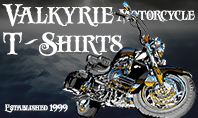U2 are a rock band from Dublin, Ireland. The band consists of Bono (vocals and guitar), The Edge (guitar, keyboards, and vocals), Adam Clayton (bass guitar) and Larry Mullen, Jr. (drums and percussion).
The band formed in 1976 when the members were teenagers with limited musical proficiency. By the mid-1980s, the band had become a top international act, noted for their anthemic sound, Bono's impassioned vocals, and The Edge's textural guitar playing. Their success as a live act was greater than their success at selling records until their 1987 album The Joshua Tree elevated the band's stature "from heroes to superstars," according to Rolling Stone. U2 responded to the dance and alternative rock revolutions and their own sense of musical stagnation by reinventing themselves with their 1991 album Achtung Baby and the accompanying Zoo TV Tour. Similar experimentation continued for the rest of the 1990s. Since 2000, U2 pursued a more conventional rock sound that retains the influence of their previous musical explorations.
U2 have sold more than 145 million albums worldwide and have won 22 Grammy Awards, more than any other band. In 2005, the band were inducted into the Rock and Roll Hall of Fame in their first year of eligibility. Rolling Stone magazine listed U2 at #22 in its list of the 100 greatest artists of all time. Throughout their career, as a band and as individuals, they have campaigned for human rights and social justice causes, including Amnesty International, the ONE Campaign, and Bono's DATA (Debt, AIDS, Trade in Africa) campaign.
The band formed in Dublin on 25 September 1976. Larry Mullen, Jr., then 14, posted a notice on his secondary school notice board (Mount Temple Comprehensive School) seeking musicians for a new band. Seven teenage boys attended the initial practice in Mullen's kitchen. It was, as Mullen put it, "'The Larry Mullen Band' for about ten minutes, then Bono walked in and blew any chance I had of being in charge." The group featured Mullen on drums, Paul Hewson (Bono) on lead vocals, Dave Evans (The Edge) and his brother Dik Evans on guitar, Adam Clayton, a friend of the Evans brothers on bass guitar, and initially Ivan McCormick and Peter Martin, two other friends of Mullen. Soon after, the group settled on the name "Feedback", because it was one of the few technical terms they knew. Martin did not return after the first practice, and McCormick left the group within a few weeks. Most of the group's material initially consisted of cover versions, which the band said was not their forte. The original material the band did write demonstrated a sound influenced by their post-punk peers.
In March 1977, the band changed their name to "The Hype". Dik Evans, who was older and by this time at college, was becoming the odd man out. The rest of the band was leaning towards the idea of a four-piece ensemble and he was "phased out" in March 1978. During a farewell concert in the Presbyterian Church Hall in Howth, which featured The Hype playing covers, Dik ceremoniously walked offstage. The remaining four band members completed the concert playing original material as "U2". Steve Averill, a punk rock musician and family friend of Clayton's, had suggested six potential names from which the band chose "U2" for its ambiguity and open-ended interpretations, and because it was the name that they disliked the least.
On Saint Patrick's Day in 1978, U2 won a talent show in Limerick, Ireland. The prize consisted of £500 and funding to record a demo, which was an important milestone and affirmation for the fledgling band. The band recorded their first demo tape at Keystone Studios, in Harcourt Street, Dublin, in April 1978. Hot Press was influential in shaping the band's future; in May, Paul McGuinness, who had earlier been introduced to the band by the magazine's journalist Bill Graham, agreed to be U2's manager. U2's first release, an Ireland-only EP entitled Three, was released in September 1979 and was the band's first Irish chart success. In December 1979, U2 performed in London for their first shows outside Ireland, although they failed to get much attention from audiences or critics. In February 1980, their second single "Another Day" was released on the CBS label, but again only for the Irish market.
Since their inception, U2 have developed and maintained a distinctly recognisable sound, with emphasis on melodic instrumentals and expressive, larger-than-life vocals. This approach is rooted partly in the early influence of record producer Steve Lillywhite at a time when the band was not known for musical proficiency. The Edge has consistently used a rhythmic echo and a signature delay to craft his guitar work, coupled with an Irish-influenced drone played against his syncopated melodies that ultimately yields a well-defined ambient, chiming sound. Bono has nurtured his falsetto operatic voice and has exhibited a notable lyrical bent towards social, political, and personal subject matter while maintaining a grandiose scale in his songwriting. In addition, The Edge has described U2 as a fundamentally live band.
Despite these broad consistencies, U2 have introduced new elements into their musical repertoire with each new album. U2's early sound was influenced by bands such as Television and Joy Division, and has been described as containing a "sense of exhilaration" that resulted from The Edge's "radiant chords" and Bono's "ardent vocals". U2's sound began with post-punk roots and minimalistic and uncomplicated instrumentals heard on Boy and October, but evolved through War to include aspects of rock anthem, funk, and dance rhythms to become more versatile and aggressive. The two albums were labeled "muscular and assertive" by Rolling Stone, influenced in large part by Lillywhite's producing. The Unforgettable Fire, which began with the Edge playing more keyboards than guitars, as well as follow-up The Joshua Tree, had Brian Eno and Daniel Lanois at the production helm. With their influence, both albums achieved a "diverse texture". The songs from The Joshua Tree and Rattle and Hum placed more emphasis on Lanois-inspired rhythm as they mixed distinct and varied styles of gospel and blues music, which stemmed from the band's burgeoning fascination with America's culture, people and places. In the 1990s, U2 reinvented themselves as they began using synthesizers, distortion, and electronic beats derived from alternative music, dance music, and hip-hop on Achtung Baby, Zooropa and Pop. The 2000s had U2 returning to a stripped-down sound, with less use of synthesizers and effects and a more traditional rhythm.
Social and political commentary, often embellished with Christian religious and spiritual imagery, are a major aspect of U2's lyrical content. Songs like "Sunday Bloody Sunday" and "Mothers of the Disappeared" were motivated by current events of the time. The former was written about the troubles in Northern Ireland, while the latter concerns the struggle of mothers whose children were kidnapped and killed under Argentina's military dictatorship that began in 1976.
Bono's personal conflicts and turmoil related to family colour songs like "Mofo", "Tomorrow" and "Kite". An emotional yearning or pleading is another frequent conveyance,[118] in tracks such as "Yahweh", "Peace on Earth", and "Please". The investigation of loss and anguish coupled with hopefulness and resiliency, which is central to The Joshua Tree, has motivated much of U2's songwriting and music. Some of this lyrical ideation has been amplified by Bono and the band's personal experiences during their youth in Ireland, as well as Bono's campaigning and activism later in his life. U2 have used tours such as Zoo TV and PopMart to caricature social trends, such as media overload and consumerism, respectively.
While the band and its fans often affirm the political nature of their music, U2's lyrics and music have been criticized as apolitical because of their vagueness and "fuzzy imagery", and a lack of any specific references to actual people or characters.
With Or Without You
One
Pride ( in the name of Love)
I Still Haven't Found What I'm Looking For
New Years Day
Bloody Sunday
Vertigo






